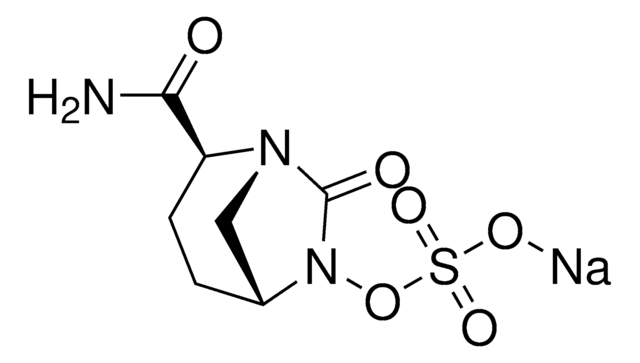SML3953
Istaroxime hydrochloride
≥98% (HPLC)
Synonym(s):
Androstane-3,6,17-trione, 3-[O-(2-aminoethyl)oxime], hydrochloride (1:1)
Sign Into View Organizational & Contract Pricing
All Photos(3)
About This Item
Empirical Formula (Hill Notation):
C21H32N2O3·HCl
CAS Number:
Molecular Weight:
396.95
MDL number:
UNSPSC Code:
12352200
NACRES:
NA.77
Recommended Products
Quality Level
Assay
≥98% (HPLC)
form
powder
storage condition
desiccated
color
white to beige
solubility
DMSO: 2 mg/mL, clear
storage temp.
-10 to -25°C
Biochem/physiol Actions
Positive inotropic agent that inhibits Na + /K + -ATPase and increases activity of Ca 2+ -ATPase at the sarcoplasmic reticulum.
Istaroxime is a positive inotropic agent that inhibits Na + /K + -ATPase and increases activity of Ca 2+ -ATPase at the sarcoplasmic reticulum. It improves cardiac performance in the failing heart. Istaroxime ameliorates calcium dysregulation Zebrafish PLN R14del arrhythmogenic cardiomyopathy model.
Istaroxime is a positive inotropic agent that inhibits Na + /K + -ATPase and increases activity of Ca 2+ -ATPase at the sarcoplasmic reticulum. It improves cardiac performance in the failing heart. Istaroxime ameliorates calcium dysregulation Zebrafish PLN R14del arrhythmogenic cardiomyopathy model.
Caution
Hygroscopic
Signal Word
Warning
Hazard Statements
Precautionary Statements
Hazard Classifications
STOT RE 2
Target Organs
Gastro-intestinal system,Heart
Storage Class Code
11 - Combustible Solids
WGK
WGK 3
Flash Point(F)
Not applicable
Flash Point(C)
Not applicable
Certificates of Analysis (COA)
Search for Certificates of Analysis (COA) by entering the products Lot/Batch Number. Lot and Batch Numbers can be found on a product’s label following the words ‘Lot’ or ‘Batch’.
Already Own This Product?
Find documentation for the products that you have recently purchased in the Document Library.
SERCA2a stimulation by istaroxime improves intracellular Ca2+ handling and diastolic dysfunction in a model of diabetic cardiomyopathy
Cardiovascular Research, 118(4), 1020-1032 (2022)
Istaroxime, a stimulator of sarcoplasmic reticulum calcium adenosine triphosphatase isoform 2a activity, as a novel therapeutic approach to heart failure
The American Journal of Cardiology, 99(2A), 24A-32A (2007)
S M Kamel et al.
Nature communications, 12(1), 7151-7151 (2021-12-11)
The heterozygous Phospholamban p.Arg14del mutation is found in patients with dilated or arrhythmogenic cardiomyopathy. This mutation triggers cardiac contractile dysfunction and arrhythmogenesis by affecting intracellular Ca2+ dynamics. Little is known about the physiological processes preceding induced cardiomyopathy, which is characterized
Our team of scientists has experience in all areas of research including Life Science, Material Science, Chemical Synthesis, Chromatography, Analytical and many others.
Contact Technical Service






